
GNU is an operating system and an extensive collection of computer software. GNU is composed wholly of free software, most of which is licensed under the GNU Project's own General Public License (GPL).

Java is a general-purpose computer-programming language that is concurrent, class-based, object-oriented, and specifically designed to have as few implementation dependencies as possible. It is intended to let application developers "write once, run anywhere" (WORA), meaning that compiled Java code can run on all platforms that support Java without the need for recompilation. Java applications are typically compiled to bytecode that can run on any Java virtual machine (JVM) regardless of computer architecture. As of 2016, Java is one of the most popular programming languages in use, particularly for client-server web applications, with a reported 9 million developers. Java was originally developed by James Gosling, a Canadian, at Sun Microsystems and released in 1995 as a core component of Sun Microsystems' Java platform. The language derives much of its original features from SmallTalk, with a syntax similar to C and C++, but it has fewer low-level facilities than either of them.
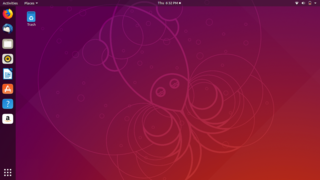
A Linux distribution is an operating system made from a software collection, which is based upon the Linux kernel and, often, a package management system. Linux users usually obtain their operating system by downloading one of the Linux distributions, which are available for a wide variety of systems ranging from embedded devices and personal computers to powerful supercomputers.

The GNU Build System, also known as the Autotools, is a suite of programming tools designed to assist in making source code packages portable to many Unix-like systems.
dpkg is the software at the base of the package management system in the free operating system Debian and its numerous derivatives. dpkg is used to install, remove, and provide information about .deb packages.

R is a programming language and free software environment for statistical computing and graphics supported by the R Foundation for Statistical Computing. The R language is widely used among statisticians and data miners for developing statistical software and data analysis. Polls, data mining surveys, and studies of scholarly literature databases show substantial increases in popularity in recent years. as of March 2019, R ranks 14th in the TIOBE index, a measure of popularity of programming languages.
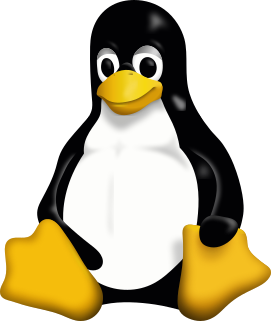
Linux is a family of free and open-source software operating systems based on the Linux kernel, an operating system kernel first released on September 17, 1991 by Linus Torvalds. Linux is typically packaged in a Linux distribution.
A software repository, colloquially known as a "repo" for short, is a storage location from which software packages may be retrieved and installed on a computer.

GNU Emacs is the most popular and most ported Emacs text editor. It was created by GNU Project founder Richard Stallman. In common with other varieties of Emacs, GNU Emacs is extensible using a Turing complete programming language. GNU Emacs has been called "the most powerful text editor available today". With proper support from the underlying system, GNU Emacs is able to display files in multiple character sets, and has been able to simultaneously display most human languages since at least 1999. Throughout its history, GNU Emacs has been a central component of the GNU project, and a flagship of the free software movement. GNU Emacs is sometimes abbreviated as GNUMACS, especially to differentiate it from other EMACS variants. The tag line for GNU Emacs is "the extensible self-documenting text editor".
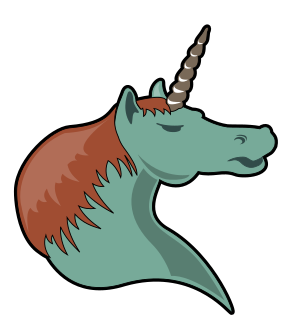
Org-mode is a document editing, formatting, and organizing mode, designed for notes, planning, and authoring within the free software text editor Emacs. The name is used to encompass plain text files that include simple marks to indicate levels of a hierarchy, and an editor with functions that can read the markup and manipulate hierarchy elements.
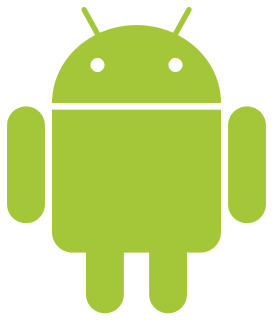
A list of Android -related topics
This is a list of file synchronization software. File synchronization is a process of ensuring that files in two or more locations are updated via certain rules.
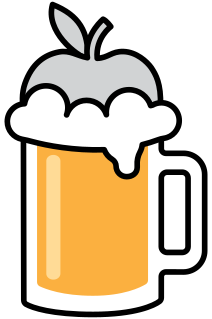
Homebrew is a free and open-source software package management system that simplifies the installation of software on Apple's macOS operating system and Linux. The name means building software on your Mac depending on taste. Originally written by Max Howell, the package manager has gained popularity in the Ruby on Rails community and earned praise for its extensibility. Homebrew has been recommended for its ease of use as well as its integration into the command line. Homebrew is a non-profit project member of the Software Freedom Conservancy, and is run entirely by unpaid volunteers.

Hybris or libhybris is a compatibility layer for computers running Linux distributions based on the GNU C library, intended for using software written for Bionic-based Linux systems, which mainly includes Android libraries and device drivers.

Nim is an imperative, multi-paradigm, compiled programming language designed and developed by Andreas Rumpf. It is designed to be "efficient, expressive, and elegant", supporting metaprogramming, functional, message passing, procedural, and object-oriented programming styles by providing several features such as compile time code generation, algebraic data types, a foreign function interface (FFI) with C and compiling to JavaScript, C, and C++.












